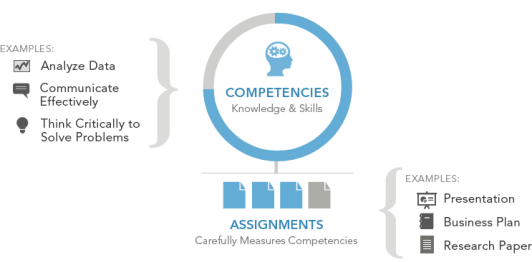 This ‘Need-to-Know’ blog post series features noteworthy stories that speak of need-to-know developments within higher education and K-12 that have the potential to influence, challenge and/or transform traditional education as we know it.
This ‘Need-to-Know’ blog post series features noteworthy stories that speak of need-to-know developments within higher education and K-12 that have the potential to influence, challenge and/or transform traditional education as we know it.
1) Skill Development for Grad and Post-Doc Students including Entrepreneurship
A group of universities in Ontario, Canada released a platform earlier this month, mygradskills.ca . The Moodle-based platform features online modules to support professional skill development for graduate and post-doctoral students. The tag line for the program is “Find your Future“. Students can choose between 20 mini-courses, in five topic areas. And though you wouldn’t normally associate post-doc students with entrepreneurship, that is one of the categories.
According to program founders, the aim of mygradskills is to give graduate students the opportunity to develop the skills they’ll need to succeed “both in their graduate programs and beyond” (Samson, 2014). One of the goals of the program is to expose students to career options available, over and above research opportunities. Apparently it’s needed as one of the founders of the platform shared in an interview, “I can’t tell you how many graduate students have told me that they were afraid to tell their faculty advisers that they didn’t want to go on in academia.”

Screen shot from mygradskills.ca “Courses” page. Currently there are 20 self-paced courses available to enrolled students.
The courses are free to graduate and post-doctoral students from Ontario Universities, and there are plans to extend the program to other Canadian Universities (the Ontario Ministry of Training funded the program).
Insight: This type of initiative has great potential for all students, including undergraduates. We read statistics of many students with undergraduate degrees either unemployed or under employed soon after graduation, yet at the same time we read of employers claiming a skills gap. This type of program could address some of the shortfalls. If available to undergraduate students in their senior year—it could get students moving towards a career or post-grad study pathway. I see it augmenting the career center services.
- Online tools aims to help graduate students develop their professional skills, Natalie Samson
- Mygradskills.ca
2) LMS for Competency Based Education
Readers may not be too interested in reading about Learning Management System news; often LMSs are considered a necessary evil to faculty and teachers of education institutions. However, news last week shared by Phil Hill over at e-literate is worthy of attention—the launch of a LMS platform geared to competency based education (CBE) programs. The new LMS launched by Helix has a different approach than traditional LMS providers. It’s not catering to an institution, but to a method of teaching and learning—CBE. Interesting.
Insight: There is, and continues to be an emphasis and support ($$$) for creation of CBE programs by the Department of Education (Fain, 2014). This new LMS approach by Helix is another indicator. I predict that we’ll be hearing a lot more about CBE in the next few months with more institutions offering CBE options for students. Why it’s significant, is because CBE is a radical departure from traditional education; it does not rely upon the credit-hour or ‘seat time’ as its often referred to, but upon mastery of units of instruction.

Competency Based Education (CBE) is an approach that allows students to advance based on their ability to master a skill or competency at their own pace. Credit is granted when the skill is mastered regardless of learning time. (image: Capella University)
Several institutions are already basing their model on CBE, College for America, an offshoot of Southern New Hampshire University and Capella University for instance. Purdue University is planning on offering a competency-based degree in the near future. Other universities that incorporate CBE principles—Western Governors University and Kentucky Community and Technical College System for its 2-year degree program.
- Helix: View of a LMS designed for competency-based education, Phil Hill, e-literate
- Competency-Based learning or Personalized Learning, The Department of Education
- Daniels awards prize for competency-based degree to Purdue Polytechnic Institute, Purdue University
- Experimenting with Aid, Paul Fain, Inside Higher Ed
3) College Rankings News
US News released its 30th edition of Best College Rankings earlier this September. It’s given fodder for many articles and blog posts. The rankings are clearly aimed at parents and students, “U.S. News provides nearly 50 different types of numerical rankings and lists to help students narrow their college search“, yet the rankings are based solely upon a “peer assessment survey”, where the peers are deans and senior faculty at peer institutions. I give much value to faculty and deans opinions, however the fact that it is the only metric for such surveys, and that the rankings are given so much weight by parents and students is disconcerting.
Insight: There is a college that is the right fit for every student that wants to go to either a two or four-year institution. Yet there is an emphasis and pressure for students to get into one of the ‘best’ colleges—often unrealistic, wasting students energy, time and (parents) money. The focus should be on finding the right college for him or her which would yield far better educational results in the long run. The ‘best’ college rankings isn’t helping students.


